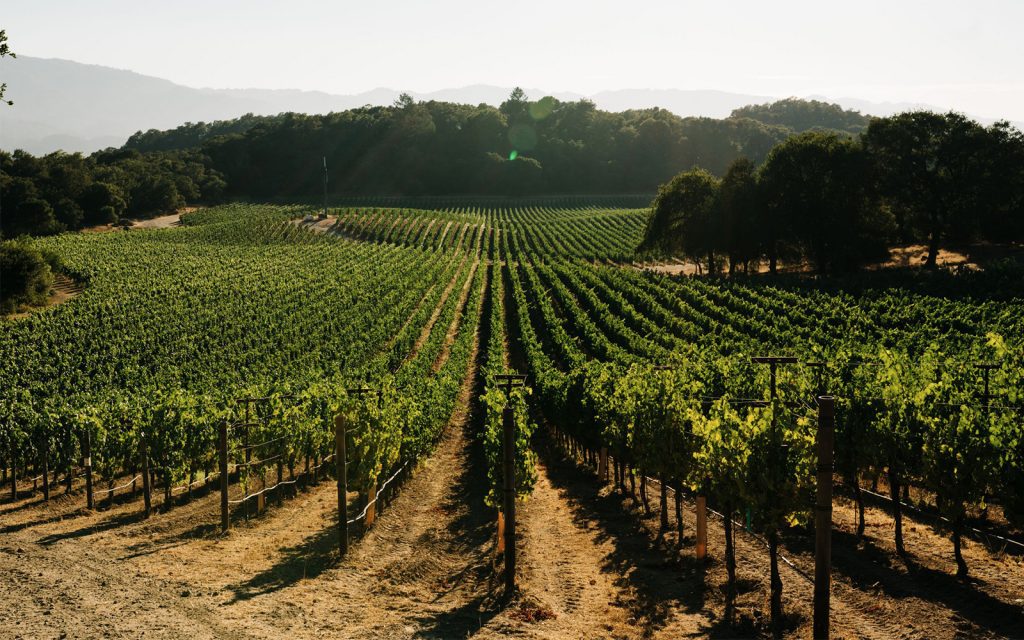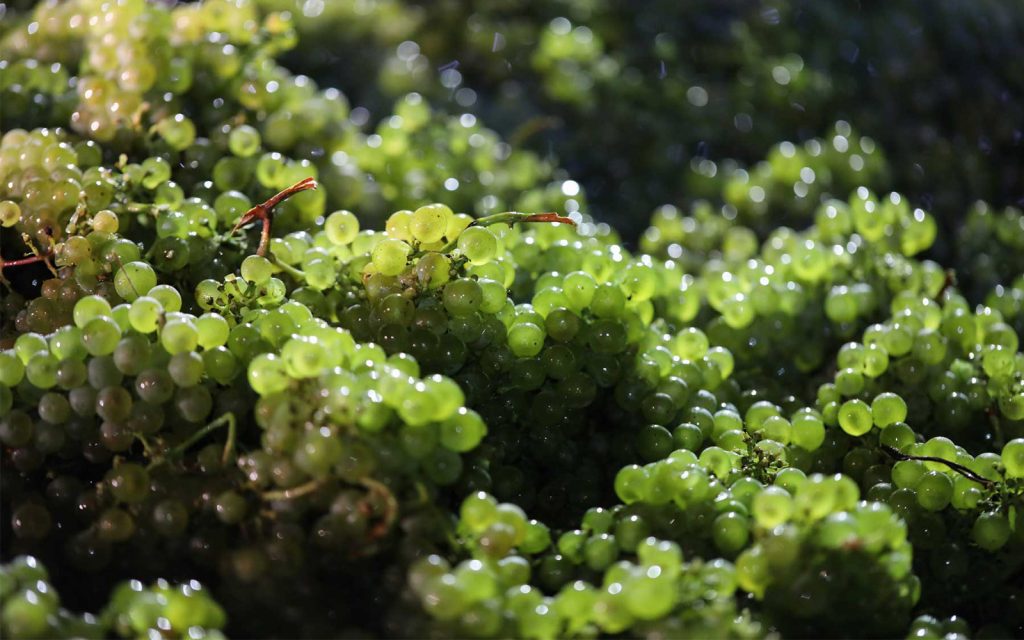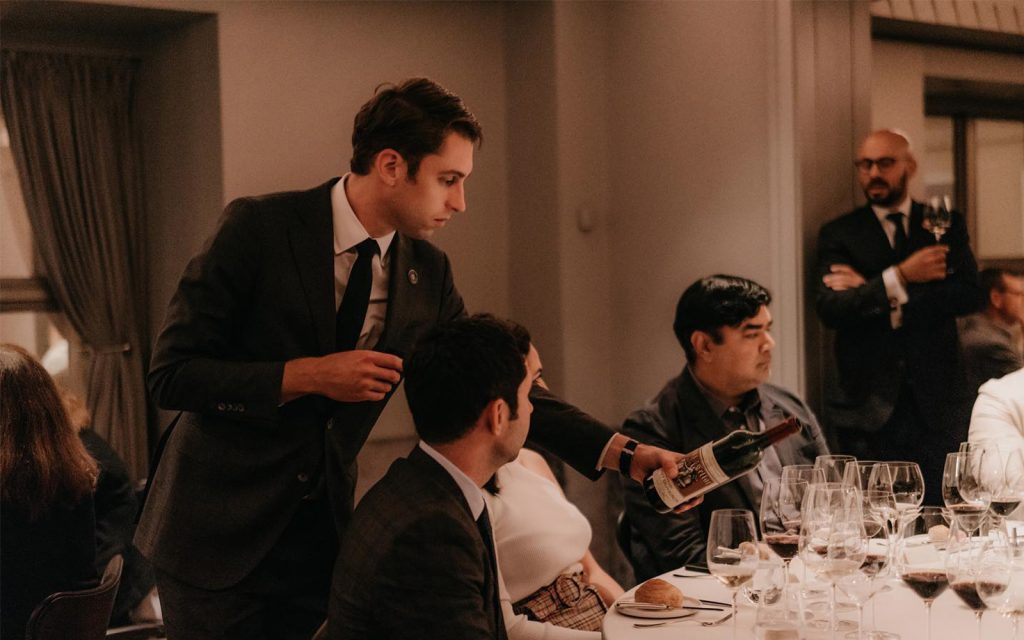Interview: Carlton McCoy Jr, Master Sommelier + CEO of Demeine Estates
One of only three Black Master Sommeliers in the world, the wine expert is ushering in a new generation of Black producers and palates

The wine world remains glaringly white—from producers to shop-owners and especially the elite group of Master Sommeliers. In fact, there are just three Black Master Sommeliers in the world. Carlton McCoy Jr, the President and CEO of Demeine Estates and Napa’s Heitz Cellar, was the second to earn the title and he’s an unwavering advocate for diversity and advancement within the industry. He has joined the Court of Master Sommeliers’ Diversity Board, the James Beard Foundation’s Board of Trustees and founded The Roots Fund with Tahiirah Habibi and Ikimi Dubose, which will assist Black and Indigenous individuals in the wine industry with financial support, scholarships, job placements, training sessions and more.
McCoy Jr’s efforts are commendable at face value, and incredible given that his career spans less than 15 years. He graduated from the Culinary Institute of America in 2006 and quickly ascended the ranks at restaurants like Per Se and Aquavit and assumed the role of wine director at Aspen’s Little Nell in 2013, where he managed a cellar containing more than 20,000 wines. He’s since shifted to managing estates and motivating younger individuals who may not see themselves represented in the industry right now, but are determined to change that. We spoke with McCoy Jr just after the launch of The Roots Fund to discuss diversity in the wine industry, his intention with Demeine Estates, drinking and more.

Can you please explain Demeine Estates and the intention behind it?
Demeine Estates is a Napa Valley-based négociant of fine wines created by the Lawrence family, owners of Heitz Cellar, and myself. Demeine Estates will represent a curated domestic and international portfolio. The aim is to encourage partnerships so that wineries may focus their efforts on continuing high-quality viticulture and wine production, while exploring innovative and sustainable winemaking and farming practices. The collective was established as a resource to add value to partners in the winemaking community with an inclusive philosophy and passion for connecting.
What are the qualities you’ll look for in the wineries you’ll represent?
We focus on historically significant estates with an emphasis on agriculture and commitment with the same core values of fine winemaking that we admired when we discovered and acquired Heitz.

Will Demeine double as a way to usher in diversity? To amplify the voices and talents of marginalized winemakers and experts?
Absolutely, Demeine Estates will be an ally to people of color and we plan to be one of the leading examples for advocacy in Napa Valley and beyond. I recently launched The Roots Fund, an organization founded to create opportunities for underrepresented minorities in the wine industry. The wine brands in the Demeine Estates portfolio have pledged to support the cause.
In partnership with The Roots Fund, Demeine Estates will aid in the fight to amplify the work of people of color and provide resources and financial support through educational scholarship, wine education, mentorship and job placement.
Is Heitz Cellar the founding winery? It’s the first and only under Demeine Estates at launch, right?
Correct, Heitz Cellar is the founding winery but not the only winery in the portfolio. Earlier this year we acquired Haynes Vineyard in Coombsville, home of the oldest Chardonnay and Pinot Noir vines in the Napa Valley. We will also be launching stand-alone brands Brendel and Ink Grade in the coming months, and more brands will be added to the portfolio in the next six months.

Can you explain some of the work you’ve done at Heitz Cellar since joining as President and CEO in 2018? What has been your focus for the winery?
My focus has been upholding the quality standards that were established very early on that make Heitz so iconic. We have shifted over to biodynamic farming techniques and more natural winemaking to further our stewardship and respect for the land. I have also moved to streamline the portfolio so we can focus on maintaining a clear image for Heitz and continue the production of outstanding quality wines. We are in the process of building a new hospitality center that will allow our guests to interact with the legacy of the brand and learn more about the terroirs of the Napa Valley and our approach to maintaining the land in a holistic way.
Change starts from within, whether you are a vintner, industry leader, sales representative or educator
What does being the second Black Master Sommelier mean to you? What does it mean for Black wine drinkers/producers/industry folks?
Being one of three Black Master Sommelier in the world is an honor and a prestigious title to hold. Though, it was an incredibly eye-opening experience when I first noticed the lack of diversity and representation in the industry. Change starts from within, whether you are a vintner, industry leader, sales representative or educator, we have a social responsibility to not only promote inclusivity for all Americans but also become an ally to the Indigenous community and people of color.
Growing up in southeast Washington, DC, we weren’t exposed to wine and it wasn’t part of our culture. At home, my family preferred beer and whiskey—I wasn’t exposed to wine until college when I started taking a wine class at the Culinary Institute of America. It was a revelation to me and opened my eyes to a completely new world. It was after that class that I knew that the wine industry was an industry that I wanted to pursue.

How will The Roots Fund work to address the lack of diversity in the wine industry?
The Roots Fund will provide mentorship, education and job opportunities to Black and Indigenous communities interested in pursuing a career in the wine industry. Utilizing our connections, we have secured dozens of wineries, retailers, restaurants and distributors that have committed to hiring The Roots Fund students with the appropriate qualifications and mentoring them to achieve those qualifications.
How can wine consumers work to do the same? Is it asking to be shown wines produced by Black and Indigenous producers? Can they lobby for their placement in fine restaurants and wine stores?
I think merely the support of Black wineries and wine brands goes a long way. Requesting them at your local restaurants and bottle shops gives confidence to those buyers that there is demand.
Images courtesy of Heitz Cellar











